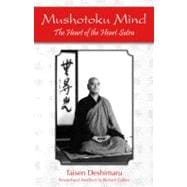
Note: Supplemental materials are not guaranteed with Rental or Used book purchases.
Purchase Benefits
What is included with this book?
| Foreword | p. vii |
| Introduction: The Practice of Radical Negation | p. xi |
| The Sutra Itself | p. 1 |
| Phonetic Transcription | p. 3 |
| English Translation | p. 4 |
| The Ideograms Line by Line | p. 5 |
| The Sutra in Context | p. 9 |
| Compassion Teaches Wisdom | p. 11 |
| Four Ways to Transmit the Hannya Shingyo: Translating, Chanting, Copying, Doing Zazen | p. 17 |
| The Mind Sutra of Great Wisdom that Enables One to Go Beyond | p. 21 |
| The Mind of Emptiness: Mujo, En, Shiki, Ku | p. 26 |
| The Text of the Sutra | p. 33 |
| How to Save All Suffering Beings | p. 35 |
| Form is Emptiness; Emptiness is Form | p. 43 |
| Interdependence: The Cosmic Balance | p. 53 |
| Beyond the High Mountain of Impermanence | p. 68 |
| Ignorance, Illusion, Satori | p. 75 |
| The Four Noble Truths That Are Not | p. 87 |
| The Heart of Zen Practice | p. 96 |
| The Mantra of the Sutra | p. 103 |
| Going Beyond the Beyond | p. 105 |
| The Six Practices: Wisdom, Giving, Precepts, Patience, Effort, Zazen | p. 122 |
| Zazen and the Five Forms of Wisdom | p. 139 |
| Contact Information | p. 156 |
| Table of Contents provided by Ingram. All Rights Reserved. |
The New copy of this book will include any supplemental materials advertised. Please check the title of the book to determine if it should include any access cards, study guides, lab manuals, CDs, etc.
The Used, Rental and eBook copies of this book are not guaranteed to include any supplemental materials. Typically, only the book itself is included. This is true even if the title states it includes any access cards, study guides, lab manuals, CDs, etc.